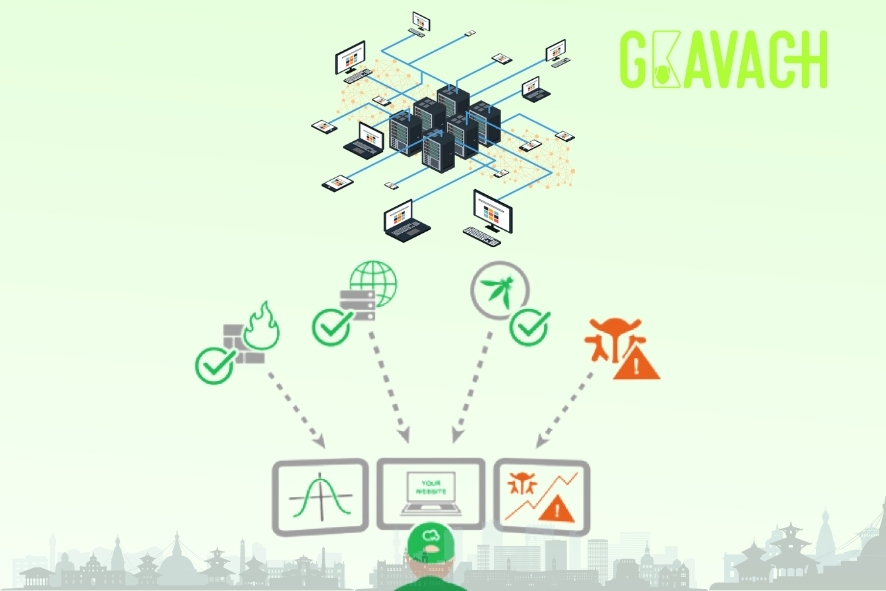Imagine doing your banking online, shopping for groceries, or chatting with friends – all from your phone. That’s the amazing world we live in today, thanks to the internet. But here’s the not-so-amazing part: with all this connection comes a danger – online threats.
The Cost of Ignoring Online Threats
Think about it this way: In just the first three months of the fiscal year (2021-2022), there were already 1547 reported cases, a surprising increase compared to the earlier year’s total of 3906. This alarming trend was reflected in Nepal’s low rankings on international cybersecurity indexes – 109th out of 160 on the National Cyber Security Index and 94th on the Global Cyber Security Index.
These attacks are not just a number. Businesses lose valuable money and resources that could be used for growing businesses and creating jobs. Worse yet, these attacks can steal personal information and damage reputations. Scary!
The Evolving Threat Landscape
- Increased Attacks: Cybercrime incidents have surged in Nepal, with over 16,000 complaints filed since 2020. This includes financial scams, identity theft, phishing attacks, and malware.
- Critical Infrastructure: Government websites have been targeted, highlighting the vulnerability of Nepal’s digital infrastructure.
- Vulnerable Populations: Children and the elderly are particularly susceptible to online threats, including cyberbullying and online child sexual abuse.
Existing Measures Fall Short
Just like padlocks protect our homes, we need shields for our digital lives. But the bad guys are getting smarter, so our shields need to be smarter too.
While Nepal has some cybercrime legislation, it lacks comprehensiveness. The Electronic Transactions Act, 2063 offers limited coverage and lacks clear definitions for important terms like “cyberbullying”. Additionally, enforcement capacity is hampered by a lack of technical expertise and resources.
Why Our Old Shields Are Not Enough?
We used to rely on basic security tools like locks on our doors (firewalls) and alarms (antivirus software). But online criminals are like sneaky robbers who keep learning new tricks. Our old protections just cannot keep up!
Making Security More Powerful: Introducing SIEM
To combat this, security experts developed a more powerful tool called a SIEM (Security Information and Event Management). Think of a SIEM like a super-attentive guard who watches everything that happens in your house (your computer network). The guard collects information from all the doors, windows, and cameras (various devices on your network) and keeps a close eye on everything.
A 2022 Ponemon Institute (United States of America) study found that organizations that use security information and event management (SIEMs) can reduce the time it takes to identify and contain security breaches by 50%.
SIEM: A Step in the Right Direction, But Not Enough
SIEMs are a big improvement, but they still have limitations. While the guard is good at watching, they might need some assistance to understand what they are seeing. For example, the guard might see someone trying to open a window (suspicious activity), but they would not necessarily know if it were a burglar or just a forgetful homeowner (distinguishing between a real threat and normal activity).
GKavach: Nepal’s First Next-Gen SIEM
This is where GKavach steps in. GKavach is Nepal’s first Next-Gen SIEM, building upon the strengths of SIEMs and adding some special features:
- Smarter Guard: GKavach is like a super-smart guard who not only watches everything but also has access to the latest crime reports (Threat Intelligence). This allows GKavach to recognize suspicious patterns and understand if someone is trying to break in (identify real cyber threats).
- Extra Awareness: GKavach can also learn the habits of everyone in the house (User Entity and Behavior Analytics). If someone unfamiliar tries to enter through a back door (unusual activity by an unauthorized user), GKavach can raise the alarm(notify) much faster.
These advanced features empower Nepali organizations to:
- Proactively detect threats: Identify suspicious activity before it becomes a full-blown attack.
- Respond to incidents faster: Respond to threats quickly, minimizing damage and downtime.
- Reduce the risk of successful cyberattacks: Enhance overall security posture and compliance.
Do not wait to be a victim. Secure your digital business future with GKavach. Contact us today!
